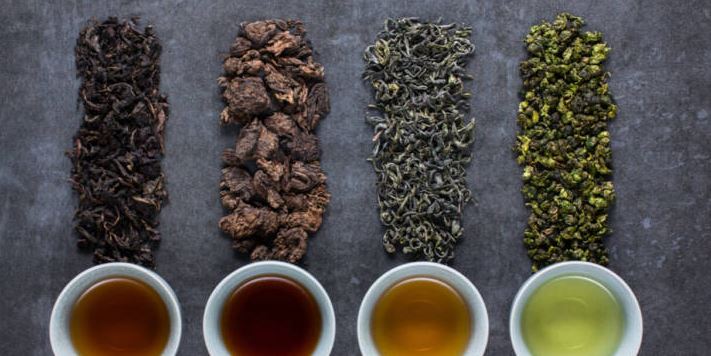Types of Tea: Exploring the World of Aromatic Beverages | |

| |
Introduction: A Sip of History and FlavorThere's nothing quite as comforting as a warm cup of tea, and with so many varieties to choose from, it's no wonder tea has captivated the hearts of millions worldwide. Whether you're a devoted tea enthusiast or just dipping your toes into the vast sea of flavors, this article will take you on an enlightening journey through the fascinating world of tea. So grab your favorite mug and let's dive in! Types of Tea: A Kaleidoscope of FlavorsBlack Tea: Bold and InvigoratingBlack tea, often associated with Britain's tea-drinking tradition, is known for its robust flavor and dark amber hue. Derived from the Camellia sinensis plant, the leaves undergo a full oxidation process, resulting in a rich and malty taste. Popular varieties of black tea include:
Green Tea: Nature's ElixirGreen tea, cherished for its fresh and grassy taste, has a long-standing history in Asian cultures. Unlike black tea, green tea leaves undergo minimal oxidation, preserving their vibrant green color and natural antioxidants. Here are some notable green tea varieties:
Oolong Tea: The Art of Partial OxidationOolong tea strikes a harmonious balance between the intensity of black tea and the subtlety of green tea. The leaves undergo partial oxidation, resulting in a diverse range of flavors that can vary from light and floral to bold and fruity. Notable oolong teas include:
Herbal Tea: Nature's InfusionUnlike other teas, herbal tea isn't derived from the Camellia sinensis plant. Instead, it's crafted from various herbs, flowers, and fruits, resulting in a wide array of flavors and therapeutic properties. Let's explore some popular herbal infusions:
FAQs about Types of Tea1. What is the best tea for boosting energy levels?When it comes to an energizing kick, black tea is an excellent choice. Its higher caffeine content can provide a gentle pick-me-up, making it an ideal companion for your morning routine. 2. Which tea is best for relaxation and stress relief?Chamomile tea is renowned for its calming properties and ability to promote relaxation. Sip on a cup before bedtime to unwind and prepare for a peaceful slumber. 3. Is green tea good for weight loss?Green tea has been associated with several health benefits, including potential weight loss properties. Its natural antioxidants, such as catechins, may aid in boosting metabolism and promoting fat oxidation. However, it's important to note that sustainable weight loss requires a balanced diet and regular exercise. 4. Can oolong tea improve digestion?Yes, oolong tea has been traditionally used to support digestive health. Its mild caffeine content and natural compounds may help stimulate the digestive system and alleviate digestive discomfort. 5. Are herbal teas safe during pregnancy?While many herbal teas are safe during pregnancy, it's essential to consult with your healthcare provider to ensure the ingredients are suitable for you and your baby. Certain herbs, such as peppermint, ginger, and raspberry leaf, are often considered safe choices during pregnancy. 6. Can I mix different types of tea together?Certainly! Tea blending is a creative way to explore new flavors and customize your brew. Feel free to experiment with combinations like black and green tea or herbal infusions to create your unique cup of tea. Savor the Symphony of TeaAs we conclude our journey through the delightful world of tea, we've witnessed the remarkable diversity and aromatic wonders that each type of tea brings. From the boldness of black tea to the tranquility of herbal infusions, there's a cup of tea to suit every palate and occasion. So go ahead, steep yourself in the richness of flavors and embark on your own tea adventure. Cheers to the marvelous world of tea! | |
| Views: 206 | | |
| Total comments: 0 | |